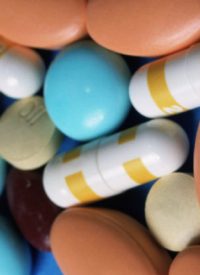
McNeil Consumer Healthcare, which is a division of the Johnson and Johnson Corporation, recalled 43 different over-the-counter children’s medications. This action was taken after an FDA inspection showed that some of the drugs might have been contaminated or the dosage miscalculated.
There is no evidence that anyone has been actually harmed by these recalled medications. The FDA emphasized that the generic equivalent of those recalled drugs were not a concern. The federal agency also recommended that parents throw out any of the recalled drugs and then replace them. The recall did not affect the adult versions of the medication, but the FDA advised parents not to try to reduce the adult dosage to children dosages. The drugs involved, by their brand name, are Tylenol, Motrin, Zyrtec, and Benadryl.
These drugs have been in use for many years and are generally safe. People have died from using Tylenol, but these deaths were not the consequence of an under-zealous federal regulatory agency. In 1982, seven people in the Chicago area died after taking Extra-Strength Tylenol capsules. Twelve-year-old Mary Kellerman of Elk Grove Village, Illinois, was the first victim. Three members of the same family would later die from the cyanide-laced Tylenol capsules.
While government agencies move at a snail’s pace in almost every situation, Johnson and Johnson moved like lightning. It quickly announced a national recall of all Tylenol capsules, it brought advertising in national media warning people not to take the medicine, and it offered to replace at no cost safe Tylenol solid tablets to anyone who had purchased Tylenol capsules. The company quickly established a liaison with the Chicago Police Department and the FDA. media congratulated the corporation for its actions. It was not just Johnson and Johnson who did exemplary work. The pharmaceutical industry quickly adopted tamper-proof battles and moved away from capsule medication, which had been corrupted with poison, to solid tablets, which were much harder to corrupt. Months later, the federal government adopted regulations that would require much of what the private companies had already done.
Mary Kellerman and those others who died in the Tylenol Murders, were not victims of indifferent private enterprise. Wicked people intent on murder and extortion were the culprits. (Violent crimes rose rapidly in America after the disastrous and misguided decisions of the Warren Court in the 1960s. Those sorts of people will be a large part of our culture until the moral values upon which our nation was founded, those values firmly rooted in Judeo-Christian traditions, dominant our culture.) What is noteworthy in the Tylenol Murders, as in the recall announced this month, is how much faster and more efficiently private firms and individuals react to tragic accidents or malicious crimes. Johnson and Johnson never needed federal regulators to push it to act. The goodwill of the corporation to consumers was a much more effective impetus to action.
Free enterprise protects consumers as well as any system that could be devised.
The FDA today keeps medications that have been used effectively for decades in Europe off the market in America because the slow-footed, dull bureaucracy has not yet completed its evaluation. The costs of complying with the FDA’s mountain of paperwork keeps many companies from trying to introduce new drugs to cure us and to ease our pain. Companies like Johnson and Johnson have a powerful, natural, and thoughtful interest in minimizing any danger or threat to the consumers by their products. Free enterprise, as Johnson and Johnson has shown by its recent recalls and its reaction to tampering with its products 28 years ago, is the best consumer protection device.



